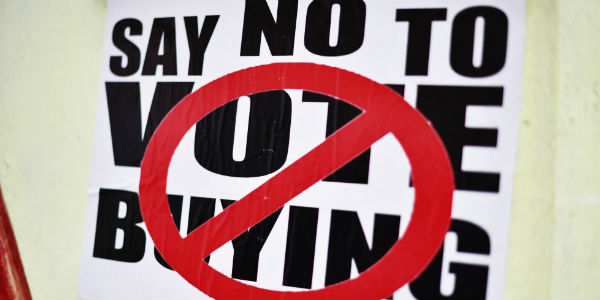As Ghana prepares to undertake its eighth Presidential and Parliamentary elections on December 7 in this Fourth Republic, monetisation of politics has begun to rear its ugly head.
Executive Director of the Centre for Democratic Development-Ghana (CDD-Ghana), Professor H. Kwasi Prempeh observes that: “Money in politics has an even greater danger in encouraging or facilitating state capture, which is a different degree of corruption wherein the institutions of the state, the laws and policies that we must make in the public interest are made not to serve the public interest, but to give clearance for money interests that are behind the campaign”.
Speaking at a public dialogue on ‘Campaign Finance Reforms in Ghana’ last week, Professor Prempeh explained that nowadays people who take up appointive positions use them as stepping stones to amass wealth to go and contest party primaries – a trend that he said has now become a norm and is disturbing.
He noted that the current status quo holds serious national security and development implications if not addressed immediately.
For instance, State-owned enterprises (SOEs), particularly those with internally generated funds, remain largely ineffective because they are manned by politicians seeking their own interest and not that of the state.
Professor Prempeh opines that political parties should be regulated and their accounts audited as a way of determining their sources of funding. As the law stands today, only citizens can contribute or sponsor political parties.
However, the CDD Executive Director sees loopholes in this law since, in our system, it is nearly impossible to trace money flow. It is difficult to identify party contributors, and this exposes the state to several dangers, he notes.
“Unregulated money in politics provides a conduit for crime to enter public office. Illicit money finds a way to get laundered”.
There is little doubt that the monetisation of politics in the country discourages people with the right ideas but without money from entering the political space. And even when people with ideas make it to the top of the political ladder, the nature of party politics makes them ineffective since they become indebted and loyal to their sponsors and financiers.
We must guard against this creeping phenomenon in our body-politic and ensure that the undue monetization of our political space does not turn around and haunt us in the future to the country’s detriment.










